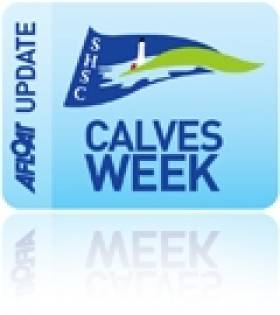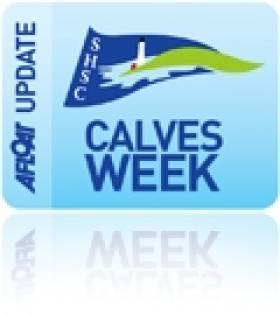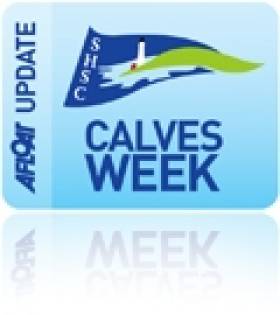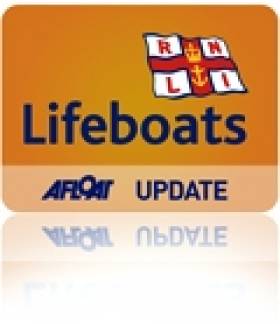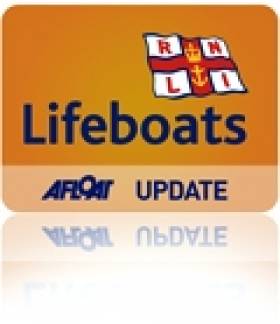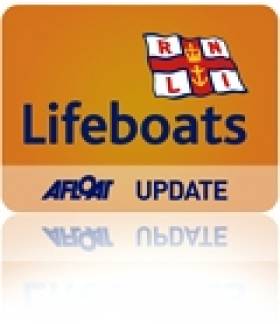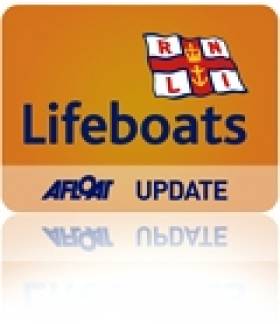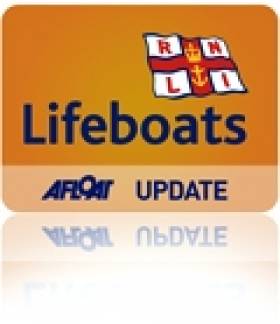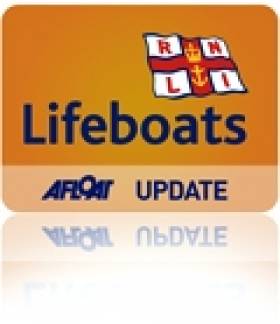Displaying items by tag: Baltimore
Donal O'Leary Continues Winning Run in Roaring Water Bay
For Thursday's Inter Island race series Race Officer Neil Prendeville sent the fleets on a long course around many of the scenic marks in Roaring Water Bay writes Claire Bateman. The arrival of the forecasted rain late in the afternoon resulted in the westerly wind dropping off to a gentle breeze, necessitating the shortening of the Class Two and White Sail One courses after five hours of sailing. In class zero Kieran Twomey's "Gloves Off" showed a clean pair of heels to the rest of the fleet, by comfortably winning both IRC and Echo with"Crackerjack" and "Infinity" in second and third. In class one, Donal O'Leary continued his run of good results in winning both divisions with Simon Coveney's "Wavetrain" second in IRC and Derry Good's "Exhale" second in Echo.
The Royal Cork dominance continued in Class Two where the Desmond, Ivers, Deasy trio in "Bad Company" captured both trophies, with Conor Ronan's "Ruthless" second in IRC and John Mc Gowan's"Mackey G" filling second place in Echo. In Class Three IRC David Kenefick's Quarter Tonner,"Tiger" is proving to beunbeatable, while Paul Murray in "Full Pelt" had a slender ten second advantage in Echo .In Class Four, Richard Hanley in "Saoirse" led his family crew to victory inboth handicap divisions ahead of "Shelly D" in IRC and "Witchcraft" in Echo.In the White Sail One class Frank Whelan added another win to his recentstring of victories with Don McCarthy's "VSOP" in second and Julian Dockery's "Flying Fox" in third, while in White Sail Two it was a cleansweep for local Schull boats with Frank Murphy's "Dreamcatcher" taking thetrophy ahead of Paul and David Kiely sailing their Norfolk Smuggler "Cu NaMara" and the Crowley family in "La Perle Noire".
Coveney's Comprehensive Victory at Baltimore Regatta
A light westerly breeze of eight to ten knots arrived in time for the start of Baltimore regatta on Bank holiday Monday. Race Officer Neil Prendeville sent the various fleets on a course through the Gascanane Sound and around the Calve Islands. The inclusion of the Amelia Buoy as a windward mark caused the race officers some anxious moments when the Irish Lights vessel 'Granuaile' lifted the mark during a routine maintenance operation just as the fleet appeared south of the Calves. However, the slow progress of the racing yachts allowed enough time to complete the operation, and the resulting spinnaker run back to Baltimore created a spectacular colourful background in Roaring Water Bay.
In Class Zero IRC Northern Ireland entry 'Crackerjack' scored her first victory of the regatta when owner L.J. Mc Mahon claimed the Regatta Cup. In Echo a fully crewed 'Loco' gave Schull Commodore Morgan O' Donovan the first local win of the regatta..
In Class One IRC Simon Coveney's 'Wavetrain' had a comprehensive victory over Ian Nagle's 'Jelly Baby'while in Echo Donal O'Leary's 'D Tox' took the spoils.
In Class Two IRC Conor Ronan's Corby 26 'Ruthless' had thirteen seconds to spare over Bad Company, while in Echo the Dann/Murphy duo in 'Val Kriss' had an equally narrow victory over the Appelbe family in 'Cochise'.
In Class Three IRC David Keneficks 'Tiger'held off a strong challenge from Cove sailing Clubs 'Bedlam',while in Echo victory went to long time event supporter Padraig O'Donovan of KYC sailing 'Chameleon'.
In Class Four the Hanley brothers in 'Saoirse' claimed victory in both divisions ahead of "Chinook" in IRC and Tete-A-Tete in Echo.
In a highly competitive White Sail One class Frank Whelans 'Blow Wind Blow' had a comfortable win over Donal Heffernans 'Aisling', while in White Sail Two the trophies went to local boats with Kieran Dwyer's 'Brazen Huzie' snatching victory from Dave Waters' 'Genevieve'.
Victory in the large 1720 class went to 'Smile'n Wave' ahead of 'Malarky' and Two to Tango.
Spinnaker Run to Calves Week
The race continued to Schull where Donal O'Learys 'D Tox' took line honours finishing shortly after 7am. With numerous requests for redress, the race committee had a busy time sorting Class One results, which resulted in 'D Tox' taking first in both IRC and Echo, with Exhale and Saxon Senator filling second and third.
The spoils were shared in Class Two With Kieran O Briens 'Magnet' taking the IRC trophy, with the Barrett/Conlon team in 'Y Knot' winning Echo.
In the combined Classes Three and Four dogged determination finally paid off for Eddie Higgins and the crew of La Maraquita who, sailing the smallest boat in the race, crossed the Schull line in an elapsed time of sixteen and a half hours to capture the Echo trophy, with David Kenefick's 'Tiger' winning IRC.
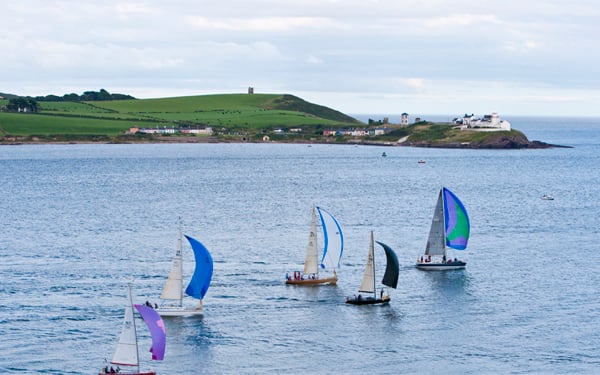
West Cork bound. Photo: Robert Bateman
Compared with their companions from the previous night, the five White Sail boats that started from Kinsale on Saturday morning had an uneventful long slog to Schull where Bryan Heffernans 'Aisling' took first ahead of Doherty and Co in 'Free Spirit' and Julian Dockery's 'Flying Fish',while Kieran Dwyer's 'Brazen Huzzie' was the sole finisher in White Sail Two.
On Sunday the Wind Gods totally deserted Schull, where Race Officer Neill Prendeville was finally forced to fly the abandonment flag after a four hour postponement.
Baltimore Lifeboat Assists Yacht Adrift
The Baltimore RNLI inshore lifeboat Bessie, was launched this evening to assist a yacht that was adrift west of the Kedge Island near Baltimore, West Cork. The 26ft yacht with two people on board had been making its way from Glandore to Schull when its engine failed. The two crew on board decided that they would not be able to make their way to a safe harbour under sail and issued a call for assistance. Baltimore lifeboat was alerted at 19:54. Within minutes the inshore lifeboat Bessie was launched. Helm Youen Jacob with his crew, Ronan Callanan and Paul O’Driscoll, made their way towards the Kedge and having located the yacht established a tow. The casualty was towed to the safety of Baltimore Harbour. Prevailing weather conditions were moderate with Westerly winds of 12-15 knots.
Related Safety posts
RNLI Lifeboats in Ireland
Safety News
Rescue News from RNLI Lifeboats in Ireland
Coast Guard News from Ireland
Water Safety News from Ireland
Marine Casualty Investigation Board News
Marine Warnings
Busy Weekend for Baltimore Lifeboat
Baltimore Inshore lIfeboat was called into service twice on Saturday to assist vessels in distress in poor weather conditions. A yacht dragging its anchor in Church Strand called for assistance while winds were freshening to force 7 from the southwest with heavy rain and poor visibility. The alarm was raised at 20:15 on Saturday. Helmsman John Kearney and crew Micheal Cottrell and Ronan Calnan provided assistance to the lone yachtsman, helped to secure the vessel and escorted her back to Baltimore Harbour.
Later at 22:40 the inshore lifeboat was again called out to give assistance to a RIB that had gone aground on a rocky shore following engine failure. There was one man and two children on board at the time. The inshore lifeboat was launched again under the direction of Helmsman John Kearney and crew Paul O'Driscoll and Tadhg Collins. Again the lifeboat was able to secure the safety of the vessel and passengers.
Related Safety posts
RNLI Lifeboats in Ireland
Safety News
Rescue News from RNLI Lifeboats in Ireland
Coast Guard News from Ireland
Water Safety News from Ireland
Marine Casualty Investigation Board News
Marine Warnings
Lifeboat Creates Wash to Assist Yacht Aground
Baltimore RNLI inshore lifeboat Bessie, was launched this morning to assist a yacht that had gone aground at an area called the Sound, North West of Baltimore Harbour. The alarm was raised at 11:52am when the 36ft Sun Odyssey yacht was seen aground across the Harbour. Helmsman Youen Jacob with his crew of Kieran Collins and John McDonagh made their way to the stricken vessel on an RNLI twin engine Atlantic 75 RIB. On arrival at the scene they found the crew hauling on their anchor line in an attempt to pull themselves off the rocks. The inshore lifeboat gave assistance by creating a wash which lifted the boat from its rocky perch. The lifeboat then escorted the yacht back to Baltimore Harbour. The yacht did not suffer any significant damage and all four passengers on board, two men and two women were uninjured.
Related Safety postsRNLI Lifeboats in Ireland
Safety News
Rescue News from RNLI Lifeboats in Ireland
Coast Guard News from Ireland
Water Safety News from Ireland
Marine Casualty Investigation Board News
Marine Warnings
Man Found Safe and Well
The man whom had been thought missing near Baltimore in West Cork has been located safe and well. All rescue services have been stood down. It is a reminder of the importance of letting people know where you are and where you are going.
Baltimore Lifeboat Search for Missing Man
The RNLI Inshore Lifeboat Bessie was called to assist in a search for a man who failed to make a pre-arranged meeting with a friend in Baltimore yesterday. The man had been camping on the Islands of Roaring Water Bay, and had left his Jeep in Baltimore. When the alert was raised at 20:18, it was unclear where the man might have been intending to stay that night. A search was initiated by Helmsman John Kearney and crewmen Micheal Cottrell and Paul O’Driscoll extending from Barlogue Creek at the mouth of Lough Hyne and into Roaring Water Bay. The Schull inshore lifeboat and the Coast guard helicopter were also involved in the search. The search was stood down last night as darkness fell and recommenced this morning at 05:15 with Helmsman Kieran Collins and crewmen Ronan Sheehy and Jim Baker on board the RNLI inshore lifeboat Bessie.
Both Baltimore Lifeboats Launch on Rescue Missions
Both the all-weather lifeboat and inshore lifeboat based in Baltimore Harbour were called to give assistance on Saturday evening 19th June.
The inshore lifeboat Bessie was called at 18:45 to standby a 58ft motor yacht that was disabled and adrift in Glandore Harbour having hit a rock. Helmsman Youen Jacob assisted by crewmen Kieran Collins and Diarmuid Collins stoody by alongside the Courtmacsherry lifeboat as the motor yacht was towed to safety in Union Hall.
The inshore lifeboat has just been returned to its compound on the pier, when a second alert was raised at 22.25. This time the all-weather lifeboat Hilda Jarrett, responded to a medical emergency on Cape Clear Island. The Public Health Nurse stabilised the casualty prior to the young man being taken on board at North Harbour on Cape Clear Island.. The ambulance service met the lifeboat on its return to Baltimore to transfer the casualty to hospital. The lifeboat was returned to base at 00.10 on Sunday morning. Coxswain Kieran Cotter, was assisted by his crew of Micheal Cottrell, Don O’Donovan, Diarmuid Collins, Brian Ormond, Simon Duggan and John O’Flynn. Remarkably Baltimore lifeboats newest recruit, Diarmuid Collins, attended at both calls.
These two incidents demonstrate the versatility of the RNLI lifeboat capacity at Baltimore. The inshore lifeboat is a twin engine Atlantic 75 RIB, purpose designed for rapid response to inshore emergencies, whilst the larger all-weather lifeboat is suited to long range calls and medical evacuations.
Baltimore Harbour Hotel for Sale
Situated on an elevated site with superb views in a popular coastal base. The Baltimore Harbour hotel in Co. Cork is for sale by private treaty. The site includes hotel suites, 6 town houses and 12 self contianed apartments. More details from Contact CB Richard Ellis, 01-618 5500 or DTZ Sherry FitzGerald, 01-639 9300.



























